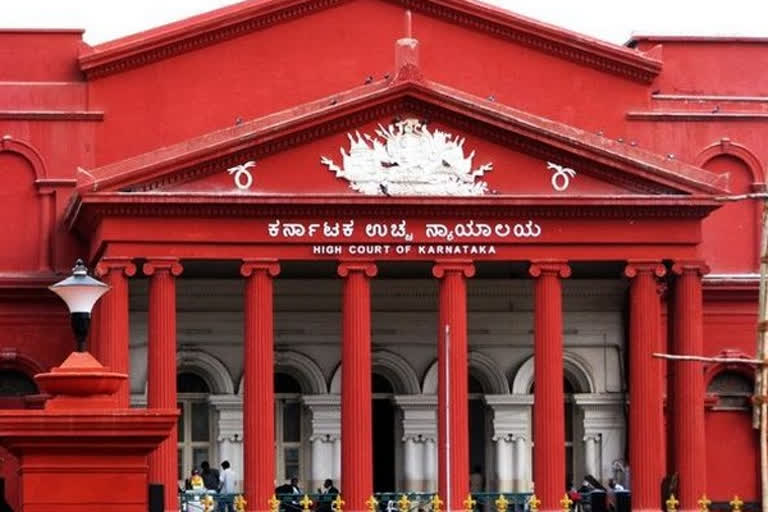Bengaluru: Hearing of the batch of petitions in the Hijab ban row in Karnataka High Court has entered the eighth day. The full bench comprising Chief Justice Ritu Raj Awasthi and Justices Krishna S Dixit and JM Khazi, resumed hearing the case at 2:30 pm today. The bench had on February 10, barred the wearing of Hijab, saffron shawls, scarves in school until the final directions from the court.
As students continue to protest the Hijab ban, several schools, and colleges either prohibit the protesting students from entering the institution or have declared holiday to avoid conflicts. One such college, Empress college in Tumakuru district, has filed an FIR on the students, becoming the first institution to do so. Meanwhile, an English lecturer at a college in the district resigned from her post as she was "ordered to remove Hijab".
On Monday, Advocate General Prabhuling Navadgi submitted that "religious instruction" should be kept outside "educational institutions" and that it is on the petitioners to prove that Hijab is an essential religious practise of Islam, which they hadn't done.
As the hearing began on Tuesday, Chief Justice asked everyone to be brief as the bench wants to "finish this week itself. So please be brief". He also said, "We don't want it to spill over to next week".
Continuing his submission, AG says, "after the bank nationalisation case, fundamental rights are not seen as watertight compartments". He goes on to clarify that its not that Hijab is restricted within the school. It is restricted only "within the classroom, during the class hours".
AG makes references to the "Holy Quran, Abdula Yusuf Ali a lawyer from Paksitan", which has been referred to by SC in Sayara Bano case. He reads out verseus of Quran pertaining to dress code to demonstrate Hijab is not made mandatory. He reiterates that there is no "prohibition of Hijab" anywhere and that it cannot be made compulsory.
Comparing schools to the military, AG Navadgi argues that a right cannot be exercised in isolation in public spaces and stresses on "Institutional discipline" being paramount. He says, "In military service somebody had sought enforcement of individual rights. This was for growing a beard, but the court negatived".
After the AG concluded his submissions, Senior Advocate R Venkataramani started making submissions on behalf of teachers, who are made respondents in a writ petition. Arguing about the importance of public order and explaining how freedom of expression does not mean one has to "go to the dark ages," the senior advocate says he doesn't want to imply that one religion is superior to the other.
However, a school is a qualified public place and as such "every public space will have its own dimensions and therefore it cannot be seen in a generic or abstract state". He says as a nation, India has always been culturally and historically pluralistic. Still, "Let us not enter into dilution or intrusion of public space by any extraneous elements" he argues.
Hearing for the day came to an end with the Bench disposing of the writ petition filed by Karnataka State Minorities Educational Institutions Management Federation recording the AG's statement that State is not interfering with minority institutions.
READ: Curfew in Shivamogga, 400 more security personnel brought in: 10 points



